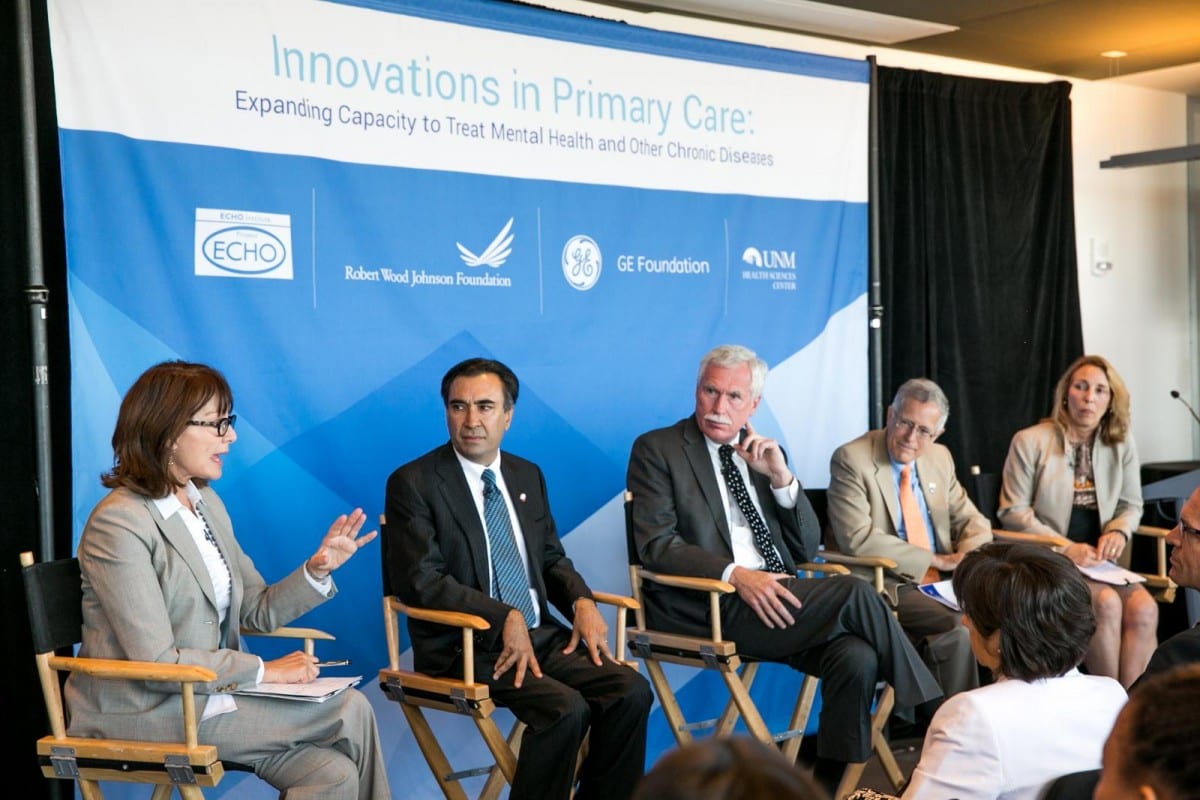A Model for Medical Education and Care Management Expands
By Tyler Weingart, July 1, 2013

Ten years ago, an estimated 28,000 men and women were infected with hepatitis C throughout the state of New Mexico, but only 1,600 were getting treatment. Statewide, only two clinics, in Albuquerque and Santa Fe, had the expertise to treat patients with hepatitis C. Dr. Sanjeev Arora, a liver disease specialist at the University of New Mexico Health Sciences Center (UNMHSC) in Albuquerque, found this gap intolerable, especially since the knowledge to treat Hepatitis C existed. There was no reason patients had to be going months, sometimes years, without seeing a specialist to care for their condition.
This lack of access to specialty care prompted Dr. Arora to create Project ECHO, a collaborative model of lifelong medical education and care management that connects specialists at academic medical centers with primary care clinicians in underserved communities to treat patients with complex, common conditions.
Each week, teams of specialists at UNMHSC “meet” in videoconference work sessions with primary care doctors, nurses, physician assistants, and other clinicians in sites across the state to review patient cases, monitor progress, and determine next steps for treatment. Although no patient is seen directly, through these weekly meetings, also known as “teleECHO clinics,” specialists share their medical knowledge and co-manage patients with primary care clinicians. Over time, through this “learning loop,” primary care teams become experts themselves in treating complex, chronic disease, resulting in a dramatic increase in access to care. In the end, underserved patients gain better access to specialty care, chronic conditions are regularly treated and best practices are rapidly shared among the medical community.
Other universities across the country have since replicated the model and ECHO is even operating abroad in places like India and Brazil. The Department of Veterans Affairs has launched a nationwide pilot of Project ECHO and the Department of Defense operates a global ECHO chronic pain management program.
Most recently, on June 14 in Washington, D.C., the Robert Wood Johnson Foundation (RWJF) and UNMHSC announced the launch of the ECHO Institute, based at UNMHSC and supported by RWJF, which will work to spread the model nationally and globally. The ECHO Institute will also ensure the integrity of the model as it replicates and connect new teleECHO clinics as they are created.
Also on June 14, the GE Foundation announced funding for Project ECHO to take on a new initiative to expand access to mental health care. Project ECHO will train and support 16 nurse practitioners and community social workers at community health centers in New Mexico to diagnose and treat patients with behavioral health conditions. If proven successful, this approach will be replicated at other ECHO sites.
From hepatitis C and diabetes to mental health and substance abuse, the ECHO model is expanding its scope of treatment. It is also expanding across rural and urban locales and building a more competent workforce. Known as a “force multiplier,” Project ECHO is a game changer we should all be paying attention to as we grapple with issues like doctor shortages and access to care.
Project ECHO is a Burness client through the Robert Wood Johnson Foundation’s Pioneer Portfolio.
